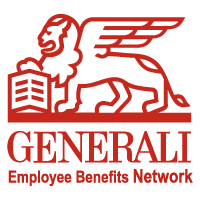What you need to know about international employee benefits plans for expatriates

Pasquale Gorrasi, head of expatriate solutions at Generali Employee Benefits, says: “Organisations recognise the positive impact of talent mobility on their capacity to expand into new markets. However they may struggle to ensure adequate protection for their staff and to coordinate plans across different jurisdictions, market practices and local cultures.”
The rapid diffusion of international plans leads to a demand by HR managers for new tools to reduce complexity and by employees for tools to simplify access to benefits coverage when working abroad.
What is new?
International plans are often established centrally to provide consistency across geographies and to favour cross-border coordination in case of relocation.
Several trends explain the growing interest in this type of solution:
- A more diversified workforce: different generations of workers are entering the scene (millennials) and new countries such as emerging economies are gaining prominence as origin and destination
- Mobility patterns have evolved and become more complex: relocation and prolonged permanence abroad is increasingly common
- A competitive landscape: offering benefits truly relevant to employees can help companies compete for global talent
What are the main advantages of global compared to domestic solutions?
- Simplicity: The daily management of a centralised plan, with a single entry point to the experiences of all mobile employees, is much simpler than running and monitoring separate contracts across the globe
- Oversight: Central administration and pricing facilitate cross-country overview, thus to identify potential gaps or overlaps, and cost control
- Portability: Portable coverage ensures access to high quality healthcare when local facilities are not available or not appropriate. Or in the case of Retirement and Savings, it helps reconnect experiences from different countries, ensuring paid contributions are not lost.
- Flexibility: Greater flexibility allows adapting the benefits design to each company specific strategy and employee population, and to devise a range of solutions for different employees in the same plan
Mobility strategy tips
The following steps can help reduce complexity and prepare a mobility plan that best suits your company:
- Ask the right questions: Find the right questions to be addressed for your company and the environment in which it operates.
- Work out location and expectations: Based on employee census, analyse where they are located, what is their status and their expectations.
- Clustering: Identify different groups of employees that represent main needs to respond to.
- Benchmark: A geographic and industry benchmark will further shed light on the employee benefits market and your company positioning against competitors. Share relevant findings with your employees to help them understand the value of the coverage they are provided with.
- Smart design: A key aspect to take into account is the need to deal with local compliance requirements. Legislation may require in certain territories adherence to local regulation. To not hinder the advantages derived from synergies and coordination, the benefits provider must be able to integrate local requirements within the framework of a global arrangement.
- Centralised reporting: Get access to a centralised reporting system, with a consistent analytical approach, to streamline monitoring, measure effectiveness and optimise costs.
International benefits plans facilitate the management of mobility strategies by providing a single entry point to the experience of all mobile employees worldwide, and by promoting consistency across borders.
Effectively protecting your mobile employees can help secure the success of expatriate assignments and the significant investment that they often represent. It really is time to think and act global.
This article was provided by Generali Employee Benefits
Supplied by REBA Associate Member, Generali Employee Benefits Network
Generali Employee Benefits' solutions are to protect and enhance the wellbeing of their workforce.







